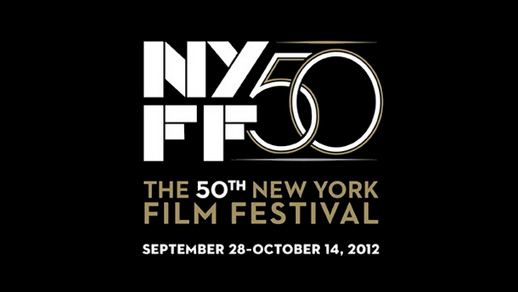
Each year for many, many years now, the esteemed and prestigious New York Film Festival has kicked off its run on the Friday, following the Thursday kick-off of our very own and much-looked-forward-to international film festival by the sea. And each year for many, many years, the number of films crossing over between the two festivals — meaning the number of films playing both Festivals simultaneously — has been quite substantial, a feature of both film festivals which continues on to this day.
In 2012, there are 14 films which will screen at both VIFF and the NYFF (New York’s is a much smaller, heavily-juried Festival).
Can’t make it to New York this autumn for the NYFF, well folks not to worry cuz here’s what VIFF has on tap in 2012 that the folks in the big smoke will be viewing the same time as us west coast denizens (note should be made that there are a number of films which you’ll find listed below to which VanRamblings has not made previous reference, which is all to the good for VIFF filmgoers who are still putting their VIFF film schedule together).
![]()
![]()
![]()
![]()
![]()
![]()
![]()
![]()
![]()
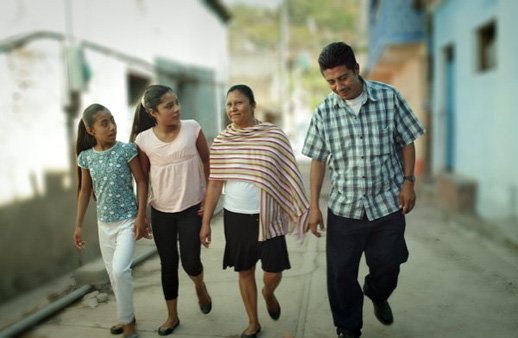

Aquí y allá (Here and There)
Antonio Méndez Esparza 2012
Mexico/Spain/USA | Spanish with English subtitles | 110 minutes
Pedro returns home to a small mountain village in Guerrero, Mexico after years of working in the U.S. His daughters feel more distant that he imagined, but his wife Teresa is delighted he’s back. With the money he’s earned he can create a better life for his family, and maybe even start the band with his cousins he’s dreamed about for years. But work back home remains scarce, and the temptation of heading back north of the border remains as strong as ever. Antonio Mendez Esparza has made a most remarkable début; rarely, if ever, has a film about US/Mexican border experience felt so fresh or authentic. Using non-professionals, Mendez Esparza gets remarkably nuanced performances that gives a richness of nuance and detail to each of his characters that goes way beyond cliché and stereotype. Winner of the Grand Prize at this year’s Critics Week in Cannes.
Amour
Michael Haneke 2012
France/Austria/Germany | French with English subtitles | 127 minutes
The universally acclaimed winner of the Palme d’Or at this year’s Cannes Film Festival, Amour is arguably Michael Haneke’s crowning achievement to date, a portrait of a couple dealing with the ravages of old age that is as compassionate as it is merciless. The great veteran French actors Jean-Louis Trintignant and Emmanuelle Riva are staggering as Georges and Anne, long-married music teachers living out their final years surrounded by the comforts of books and music in their warm Paris apartment. After Anne suffers a stroke, Georges attends to her with firmness shot through with love. The underlying unease, as well as some abrupt surprises, are hardly unexpected from Haneke, who challenges the viewer to confront the experience of his characters as directly as he does. But he rewards the effort with a film that is all the more moving for its complete avoidance of sentimentality. An unquestionable masterpiece.
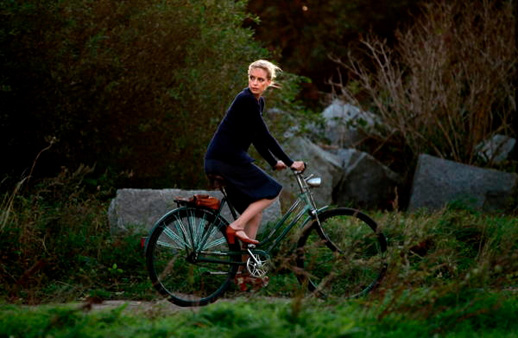

Barbara
Christian Petzold 2012
Germany | German with English subtitles | 105 minutes
Set in 1980, director Christian Petzold’s latest work centers around a doctor — played by the incomparable Nina Hoss, in her fifth film with the director — exiled to a small town from East Berlin as punishment for applying for an exit visa from the GDR. Planning to flee for Denmark with her boyfriend, Barbara remains icy and withdrawn around her colleagues, particularly with the lead physician (the excellent Ronald Zehrfeld), who is hiding a secret of his own. With her patients, however, the guarded doctor is kind, warm, and protective, even risking her own safety for one of her charges. Masterfully controlled and totally absorbing, this Cold War thriller expertly details the costs of telling and withholding the truth. Winner of the SIlver Bear for Best Director at this year’s Berlin Film Festival.
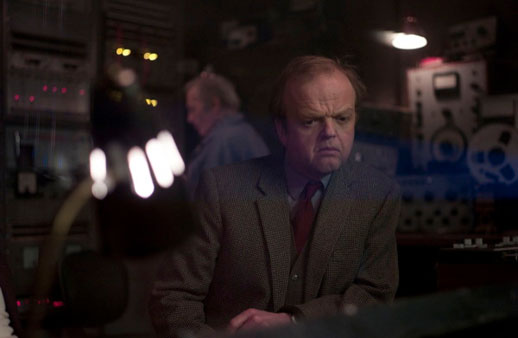

Berberian Sound Studios
Peter Strickland 2012
UK | 92 minutes
For his second feature, the young British director Peter Strickland (Katalin Varga) has created an alternately cheerful and caustic valentine to the low-budget giallo horror films that populated Italian cinema throughout the 1960s, ’70s and ’80s. The year is 1976 and a mild-mannered British sound engineer named Gilderoy (the delightful Toby Jones) arrives in Rome to work on the post-synchronized soundtrack to The Equestrian Vortex, a tale of witchcraft and murder set inside an all-girl riding academy. Instead of showing us any scenes from this lurid movie-within-the-movie, however, Strickland keeps his focus squarely on the mayhem within the sound studio itself, as Gilderoy and his team plunge carving knives into fruits and vegetables, actresses try out various shrieks and screams in the recording booth, and a pompous director struts about comparing his schlock to high art. Then, gradually, the line between cinema and reality blurs, and Gilderoy can no longer tell if he is merely working on this movie or is perhaps its very subject. Decked out in fastidious period detail and a keen appreciation for the suggestive power of sound, Berberian Sound Studio is a creepy treat for cinephiles and horror fans alike. Winner: Best Film, Best Director (Peter Strickland) and Best Actor (Toby Jones) at FrightFest 2012!
Holy Motors
Leos Carax 2012
France | French with English subtitles | 115 minutes
This unclassifiable, expansive movie from Leos Carax — his first feature in 13 years — operates on the exhilarating logic of dreams and emotions. After a prologue in which Carax himself, clad in pajamas, walks through a corridor that leads to a theater full of silent spectators, Holy Motors segues to actor Denis Lavant, Carax’s longtime collaborator, playing a mysterious man named Oscar who inhabits 11 different characters over the course of a single day. This shape-shifter is shuttled from appointment to appointment in Paris in a white-stretch limo driven by the soignée Edith Scob (Eyes Without a Face); not on the itinerary is an unplanned reunion with Kylie Minogue. To summarize the film any further would be to take away some of its magic; the most accurate précis comes from its own creator, who aptly described Holy Motors after its world première in Cannes as “a film about a man and the experience of being alive.”
Kinshasa Kids
Marc-Henri Wajnberg 2012
Belgium/France | Lingala and French with English Subtitles | 85 minutes
Perhaps the most ebullient “musical” you’ll see this year, Marc-Henri Wajnberg’s singular documentary/fiction hybrid follows a group of street kids — kicked out of their homes for being “witch children” — in the titular Congolese capital. These ever-resourceful youngsters decide to form a band and team up with Bebson, an eccentric impresario and one-time recording star; he’s just one of many unforgettable adults who, whether as informal instructors, fellow musicians, or menacing pursuers, impact the lives of these indefatigable tykes. Completely devoid of sentimentality and condescension, Kinshasa Kids celebrates and honors both the resilience of its young protagonists and the chaotic city in which they live.
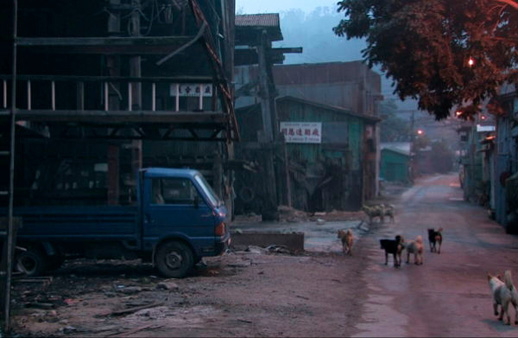

The Last Time I Saw Macao
João Pedro Rodrigues, João Rui Guerra da Mata 2012
Portugal/France | Portuguese with English Subtitles | 85 minutes
This stunning amalgam of playful film noir and Chris Marker-like cine-essay from João Pedro Rodrigues (To Die Like a Man) and João Rui Guerra da Mata explores the psychic pull of the titular former Portuguese colony. After a spectacular opening scene, in which actress Cindy Scrash lip-synchs, as tigers pace behind her, to Jane Russell’s “You Kill Me” — from Josef von Sternberg’s Macao (1952), a key reference here — the film shifts to da Mata’s off-screen recollections of growing up in this gambling haven in the South China Sea. He’s come back to Macao to help a friend who later vanishes — a mystery that begets not only poetic ruminations on memory and place, but also magnificent compositions of flora, fauna and cityscapes.
Leviathan
Lucien Castaing-Taylor, Véréna Paravel 2012
France/UK/USA | English | 87 minutes
Having previously immersed us into the worlds of Montana sheep herding and Queens auto salvaging, respectively, NYFF alumni Lucien Castaing-Taylor (Sweetgrass) and Véréna Paravel (Foreign Parts) team for another singular anthropological excavation, this time set inside one of the world’s most dangerous professions: the commercial fishing industry. Taking to the high seas of the North Atlantic — Herman Melville territory — the filmmakers capture this harsh, unforgiving world in all of its visceral, haunting, cosmic detail, using an arsenal of cameras that pass freely from film crew to ship crew, and swoop from below sea level to literal bird’s-eye views. The result is a hallucinatory sensory experience quite unlike any other. To paraphrase Francis Ford Coppola describing his Apocalypse Now, Leviathan isn’t a movie about commercial fishing; it is commercial fishing.
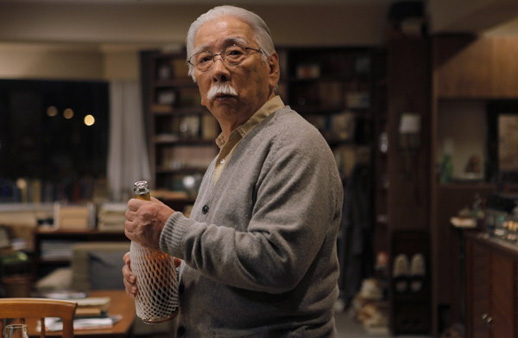

Like Someone in Love
Abbas Kiarostami 2012
Japan/France | Japanese with English Subtitles | 109 minutes
Fresh from the triumph of his Tuscany-set Certified Copy, master filmmaker Abbas Kiarostami travels even further afield from his native Iran for this mysteriously beautiful romantic drama filmed entirely in Japan. The film revolves around the brief encounter between an elderly professor (the wonderful 81-year-old stage actor Tadashi Okuno, here playing his first leading role in a film) and a sociology student (Rin Takanashi) who moonlights as a high-end escort. Dispatched to the old man by her boss — one of the professor’s former students — the young woman finds her latest client less interested in sex than in cooking her soup, talking, and playing old Ella Fitzgerald records (like the one that gives the film its allusive title). Eventually, night gives way to day and a tense standoff with the student’s insanely jealous boyfriend (Ryo Kase); but as usual in Kiarostami, nothing is quite as it appears on the surface. Are these characters — who conjure in one another the specters of regret and roads not taken — meeting by chance, or is it fate? Is this love, or merely something like it?
No
Pablo Larraín 2012
Chile/USA | Spanish with English subtitles | 110 minutes
In 1988, in an effort to extend and legitimize its rule, the Chilean military junta announced it would hold a plebiscite to get the people’s permission to stay in power. Despite being given 15 minutes a day to plead its case on television, the anti-Pinochet opposition was divided and without a clear message. Enter Rene Saavedra (an excellent Gael García Bernal), an ad man who, after a career pushing soft drinks and soap, sets out to sell Chileans on democracy and freedom. Winner of the top prize in this year’s Directors’ Fortnight in Cannes, No is little short of a miracle: shooting on U-matic video tape to give the film the look of the Eighties, Pablo Larraín (Tony Manero, Post Mortem) has created a smart, funny and totally engrossing political thriller with a powerful resonance for our times.


Our Children
Joachim Lafosse 2012
Belgium/Luxembourg/France/Switzerland | French with English Subtitles | 111 minutes
How does it happen that a vibrant, capable young woman loses her sense of self-worth and ends up destroying what she most loves? Belgian director Joachim Lafosse structures an all too familiar contemporary story that was headline news in Europe as a classical tragedy. Émilie Dequenne more than fulfills the promise of her award-winning performance in the Dardenne brothers’ Rosetta with this portrait of a young school teacher who marries a Moroccan immigrant (Tahar Rahim) and has four children with him, while gradually becoming aware of how much he is in thrall to his mentor, a domineering doctor (Niels Arestrup). Rahim and Arestrup reprise their father/son relationship from Jacques Audiard’s A Prophet but with an even more corrupt twist. Lafosse’s direction of this perverse narrative of patriarchal power and female oppression is like steel wrapped in silk.
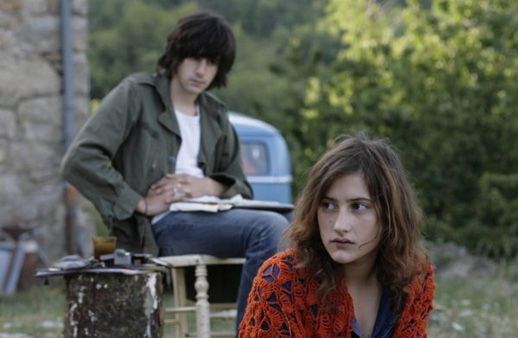

Something in the Air
Olivier Assayas 2012
France | French with English Subtitles | 122 minutes
In the months after the heady weeks of May ’68, a group of young people search for a way to continue the revolution believed to be just beginning. For Gilles (newcomer Clément Mettayer), this means having to balance his political commitments with his desire to explore painting and filmmaking; for his girlfriend Christine (Goodbye, First Love star Lola Créton), this means throwing herself wholeheartedly into the task of organizing. Olivier Assayas (Carlos, Summer Hours) here describes the sentimental education of a generation that was too young to have been on the barricades; he brilliantly captures its explorations of new lifestyles, the arguments about strategies and tactics, and above all its music, a constant presence that becomes something like the artistic unconscious of an era. The period details are perfect, but what makes this film so special is the sense it conveys of history as lived experience.


Tabu
Miguel Gomes 2012
Portugal | Portuguese with English Subtitles | 118 minutes
The ghosts of F.W. Murnau, Luis Buñuel, Joseph Cornell and Jack Smith hover above Miguel Gomes’ third feature — an exquisite, absurdist entry in the canon of surrealist cinema. Shot in ephemeral black-and-white celluloid, Tabu is movie-as-dream — an evocation of irrational desires, extravagant coincidences, and cheesy nostalgia that nevertheless is grounded in serious feeling and beliefs, even anti-colonialist politics. There is a story, which is delightful to follow and in which the cart comes before the horse: the first half is set in contemporary Lisbon, the second, involving two of the same characters, in a Portuguese colony in the early 1960s. Be My Baby belted in Portuguese, a wandering crocodile, and a passionate, ill-advised coupling seen through gently moving mosquito netting make for addled movie magic. The winner of the Alfred Bauer Prize (for a work of particular innovation) and FIPRESCI award at this year’s Berlin Film Festival.